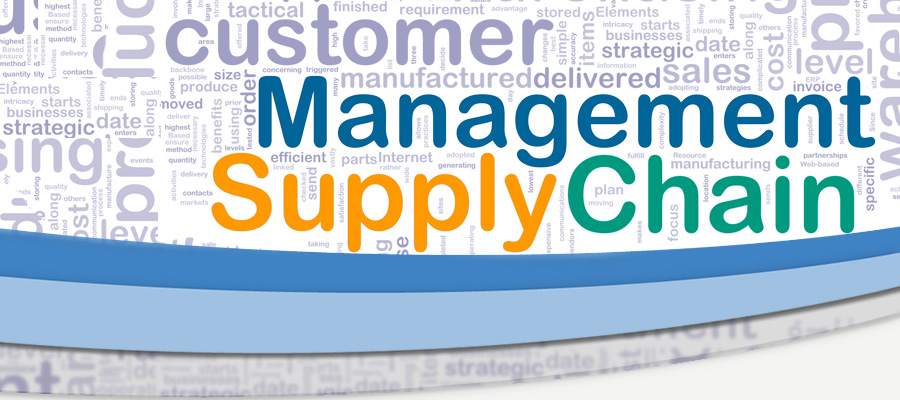News You Can Use: 5/29/2019

- How work became the millennial religion of choice
According to Jobvite’s annual Job Seeker Nation survey, 42% of American workers define themselves by the jobs they perform and/or the companies they work for, and that number rises to 45% among those under the age of 40. Furthermore, of the 42% who say that they define themselves through their work, 65% say it’s “very important” to who they are as people.
“We have spiritual lives, we have physical lives, we like to have intellectual stimuli in our lives, we have our communities and our families and friends; humans are complex, and to have a really healthy balance, it requires all of those components,” says Rachel Bitte, Jobvite’s chief people officer. “Expecting all of that to come from your work could be an unrealistic expectation.”
https://www.fastcompany.com/90350861/how-work-became-the-millennial-religion-of-choice
- Diverse Workplaces Generate 19 Percent More Revenue Than Less Diverse Competitors
Other tactics that La Mendola took to task for organizing multicultural teams included pinpointing personalities. By identifying the types of personalities on a team, from Type A taskmasters to creative working out-of-the-box types, you’ll begin to understand how to best approach the team as a whole.
For a more laid back crowd, La Mendola recommends establishing a laissez-faire work environment–humor helps, too. In a multicultural environment that is more serious and straightforward, keep the crew on task for the best results. This is how La Mendola is able to manage a team of engineers from around the world and is also key to dealing with a multigenerational employee group.
- How AI will liberate doctors from keyboards and basements
- How Silicon Valley gamed Europe’s privacy rules
Smaller firms — whose fortunes were of special concern to the framers of the region’s privacy revamp — also have suffered from the relatively high compliance costs and the perception, at least among some investors, that they can’t compete with Silicon Valley’s biggest names.
“Big companies like Facebook are 10 steps ahead of everyone else, and 100 steps ahead of regulators,” declared Paul-Olivier Dehaye, a privacy expert who helped uncover Facebook’s Cambridge Analytica scandal. “There are very big questions about what they’re doing.”
The patchy record of Europe’s data protection overhaul — on the one-year anniversary of its implementation — has given industry an opportunity to blunt similar efforts outside the European Union to emulate the region’s new privacy rules.
News You Can Use: 7/11/2018

- ‘Work Smart, Not Hard’ Is a Lie: Why Smart Is Nice But It’s Hard that Matters
High performers typically work more hours than average performers. Simple logic explains why. If two equally skilled and motivated people engage in an activity and one person spends 25 percent more time on it, that person will produce more results, on average. The additional time they invest at work creates a virtuous cycle. More work means more learning has occurred, so that person becomes more capable and potentially a better contributor in the future. Her higher performance from her additional hours becomes known in the organization, so she receives additional opportunities to show her skills. She might get more exposure to senior leaders who can serve as sponsors or mentors. Her success isn’t guaranteed because she’s put in more hours, but she will be more likely to succeed than those who work fewer hours.
- It’s official: No one cares about your “cool” office perks
Those funky perks employers tout as supposed emblems of a great work culture are actually empty totems that employees don’t really care about.
“One of the top factors most likely to keep professionals at their company for 5+ years,” LinkedIn researchers write in a summary of the findings shared this morning with Fast Company, “is having strong workplace benefits such as PTO, parental leave, and health insurance (44%). In comparison, the least enticing factor for keeping professionals at their current companies is having in-office perks such as food, game rooms, and gyms (19%).”
https://www.fastcompany.com/40589970/its-official-no-one-cares-about-your-cool-office-perks
- Uber ruined their careers. Should it pay a price?
- Higher testosterone levels are apparently driving men to luxury goods
A new study published this week by a collaboration of very serious academic institutions has come up with a finding that’s equal parts trivial and amusing: higher testosterone levels in men have been shown to stimulate a higher preference for luxury or status symbol goods. Authored by researchers at Caltech, the Wharton School, INSEAD, ZRT Laboratory, and the Sorbonne University, the study suggests there’s a measurable causal relationship between the hormone testosterone and a person’s desire for higher-status brands and goods.
https://www.theverge.com/2018/7/4/17534124/caltech-testosterone-luxury-status-symbols-study-report
- When diversity training backfires
“While the capacity for white people to sustain challenges to our racial positions is limited — and, in this way, fragile — the effects of our responses are not fragile at all; they are quite powerful, because they take advantage of historical and institutional power and control. We wield this power and control in whatever way is most useful in the moment to protect our positions. If we need to cry so that all the resources rush back to us and attention is diverted away from a discussion of our racism, then we will cry (a strategy most commonly employed by white middle-class women). If we need to take umbrage and respond with righteous outrage, then we will take umbrage. If we need to argue, minimize, explain, play devil’s advocate, pout, tune out, or withdraw to stop the challenge, then we will.”
https://www.cio.com/article/3286623/it-industry/when-diversity-training-backfires.html
Photo by Carl Heyerdahl on Unsplash
News You Can Use: 5/11/2016

- Chris Sacca says there’s “a greed case for diversity”
There’s a very strong business case for diversity that can affect a company’s bottom line. If you have a gender-diverse company, it can result in a 15 percent greater financial performance compared to a company that is not diverse, according to McKinsey. Meanwhile, ethnic and racial diversity at the leadership and board level leads to a 35 percent greater financial performance. In Silicon Valley specifically, the tech-dominant area could gain $25 billion (a 9% increase) in gross domestic product by 2025.
http://techcrunch.com/2016/04/29/chris-sacca-says-theres-a-greed-case-for-diversity/
- Why outsourcing customers are terminating their call center deals
What’s going on, say Everest’s analysts, is that buyers have greater expectations from their call center providers today. No longer content with simply lower costs, they are looking for vendors that can partner will them to deliver improved business outcomes. They are seeking engagements that incorporate emerging technologies, automation, and big data analytics. And they’re showing the vendors who can’t meet these increased demands the door.
- How Men’s Changing Friendships Might Reshape The Workplace
There are lots of reasons why we think friendship and work don’t mix, aside from hyper-competitiveness. First, there’s longevity: gone are the days when, like my grandfather, you spent your entire working life at one company with the same colleagues, until death or retirement, whichever came first. Now our colleagues are unlikely to be around in five or six years.
There’s also hierarchy to consider. What if you get promoted—or your friends do—and you suddenly aren’t “peers” but supervisors and supervised? And besides, social media can keep us connected to older friends, no matter how far-flung.
It’s hard to say whether the evolving workplace is changing male friendships or vice versa; probably it’s a mix of the two. But what’s clear is that at the same time that corporate hierarchies are flattening and employee tenures shortening, men are steadily growing closer.
- Supply Chain Managers Put on High Alert Against “Ransomware”
Ransomware uses special encryption software to lock up the targeted data, so that it is irrecoverable until the hackers release the key. The malware is typically spread via phishing emails, infected websites and other means (portable media, vendor networks, ‘botnets,’ etc.) – and all it takes is one infected computer to put a company’s entire network at risk.
Any supply chain is potentially vulnerable, unless it’s completely air-gapped and undiscoverable from a public-facing web server. However, this is unlikely – it is exceedingly difficult to silo networks and data in such a way that malware can’t get through and still be able to manage them easily.
- Technological Sustentation 90: Open Source
Open Source brings unique advantages, but it also brings unique risk. Who is going to support the platform day to day? Maintain it and fix the bugs? Add new functionality and integration capability as the organizational platforms change? And how can you be sure someone didn’t sneak something proprietary in there, either on purpose or by accident, and you won’t be accused of IP theft or a license infringement and have to tack legal costs onto the bill (as there is no provider to indemnify you)? All of this is addressable, and controllable, but you need to be aware of all the risks, and have a game plan to mitigate them up front, or getting any open source project approved in an organization that still wants a one vendor platform and “one neck to choke” (that is outside the organization) will be an uphill battle.
http://sourcinginnovation.com/wordpress/2016/04/27/technological-sustentation-90-open-source/
- Why analytics is eating the supply chain
“It’s about agreeing on forecasts and collaborating on inventory throughout the supply chain,” Myerson said. “It really improves efficiency, cost and quality, and not just for manufacturers.”
http://www.computerworld.com/article/3063541/big-data/why-analytics-is-eating-the-supply-chain.html
The Supply Chain: 3/4/2015

- The Western procurement issue in China (Yes, the US did have some kind of back-door spying equipment installed in American-branded equipment but China isn’t an innocent party – they have been ripping off US patents and designs for years to get their manufacturers competitive. )
Yes, the US did have some kind of back-door spying equipment installed in American-branded equipment but China isn’t an innocent party – they have been ripping off US patents and designs for years to get their manufacturers competitive.
- SAP: Welcome to the new era of procurement:
Procurement can and will play an increasingly strategic role in managing this virtual enterprise, leveraging technology to simplify the way complex business gets done and manage their operations in a new and dynamic way that keeps their companies ahead of the competition. Procurement is evolving from service to a function. And with increasing frequency, it is focused on business value and enabling supplier innovations as opposed to just driving procurement savings through cost reductions.
http://www.news-sap.com/procurement-2015-evolution-continues/
- Four ways to access the strength of suppliers:
A company with a high proportion of long-term contract agreements in its order book is likely to be more secure than a firm completing work on a shorter term basis. However, a retained contract should not prompt reckless overconfidence; it is often a good idea to look over notice periods and analyse the probability of changes in market conditions or demand which could reduce a client’s requirement for the business’ goods or services.
http://www.supplymanagement.com/blog/2015/02/four-ways-to-assess-the-strength-of-suppliers
- Failure to Work With Minority Owned Businesses a Challenge in the Private and Public Sector
Last month, the NAACP Florida State Conference led by President Adora Obi Nweze released an Economic Development Report Card on the records of targeted cities, counties, school districts and private corporations in the State of Florida. What stood out amidst all of the findings were the poor minority procurement practices that were consistent through the public and private sector. In summary, most local governments spent less than two percent with veteran, minority and women -owned businesses.
http://www.huffingtonpost.com/dedrick-muhammad/failure-to-work-with-mino_b_6736984.html

